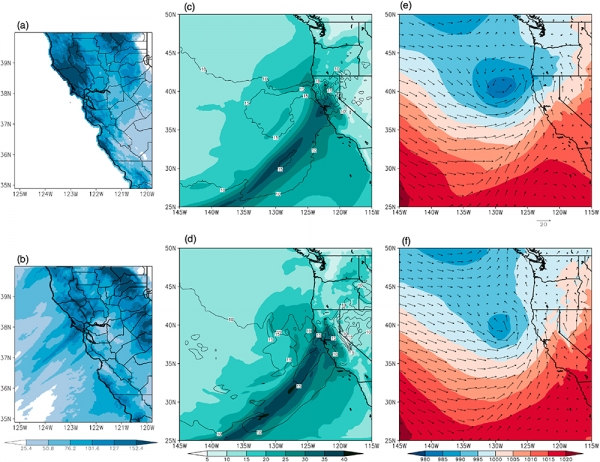The December 2014 North American Storm Complex was a powerful winter storm, referred to by some as California's "Storm of the Decade." Fueled by an atmospheric river originating over the tropical waters of the Pacific Ocean, the storm dropped 8 inches of rainfall in 24 hours, sported wind gusts of 139 miles per hour, and left 150,000 households without power across the San Francisco Bay Area.
Writing in Weather and Climate Extremes this week, researchers described the potential impacts of climate change on extreme storms in the San Francisco Bay area, among them the December 2014 North American Storm Complex.
Re-simulating five of the most powerful storms that have hit the area, they determined that under future conditions some of these extreme events would deliver 26-37% more rain, even more than is predicted simply by accounting for air's ability to carry more water in warmer conditions.
Continue reading at Texas Advanced Computing Center
Image via Texas Advanced Computing Center


